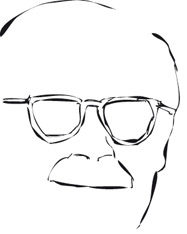Michele Tansella was a pioneer in the field of epidemiological psychiatry and the field of mental health service evaluation. He contributed to these fields as a distinguished scientist throughout his life. In his long academic career, Michele Tansella (1995) wrote that there are 5 stages in an academic life: Learning; Doing; Directing; Advising; Reflecting. Michele wonderfully accomplished all these stages and has left a mark from each one of them. He graduated from the Medical School of the University of Bari in 1966, where he also specialized in Psychiatry in 1969. He spent some time at the Mario Negri Institute in Milan, and then moved to the General Practice Research Unit of the Institute of Psychiatry (IOP) in London. Here he met Michael Shepherd, who he always considered his mentor. Shepherd introduced him to the new field of psychiatric epidemiology and from him he learned the critical attitude, which he always adopted and recommended as an essential tool to distinguish ‘impressions’ from ‘facts’. At the beginning of the 70s he held an academic position at the Institute of Psychiatry of the University of Verona. Here he marked stages 2 (doing) and 3 (directing) of his academic career. He set up a Community Mental Health Service, which has become a model for many Italian and foreign colleagues, overcoming the old-fashioned system of institutional care. He established the first Italian psychiatric case register, and he effectively combined the delivery of appropriate clinical care with research and training of junior doctors, residents, PhD candidates, etc. Because of his growing international reputation, the Verona Clinic was appointed as a ‘WHO Collaborating Centre for Research and Training in Mental Health and Service Evaluation’.
In his 40 years of academic career, the Psychiatric Clinic of the University of Verona, under his tireless direction, has trained hundreds of professionals active in mental health. The institute has produced a very large body of clinical, experimental and epidemiological research, as witnessed by 558 scientific papers he has authored and by 35 volumes authored or edited. For eight years, he also was appointed as Dean of the Medical School of Verona. In this position he strengthened overall medical research and improved interdisciplinary collaboration, which he always regarded as the only successful strategy in biomedical disciplines. In 1992 he founded the journal ‘Epidemiologia e Psichiatria Sociale’ (EPS), which rapidly became the principal Italian journal in the area of mental health. In 2011 EPS became a full international journal, ‘Epidemiology and Psychiatric Sciences’, published by Cambridge University Press. In a few years, EPS has become one of the most authoritative journals in the area of mental health, and attracts important research from all countries all over the world. Given his international reputation, Michele was involved for many years in a variety of international activities:
- Member of the ‘WHO Expert Advisory Panel on Mental Health’;
- Member of the Section Committee on Epidemiology and Public Health of the World Psychiatric Association (WPA)
- Honorary Visiting Professor at the ‘Health Services Research Department’ of the IOP, Kings’ College, University of London;
- Member of the ‘Executive Group of International Mental Health’ at the Institute of Psychiatry (IOP), London;
- Expert Advisor on the External Strategic Advisory Board (ESAB), Biomedical Research Centre for Mental Health (BRC-MH) at South London and Maudsley NHS Foundation Trust and Institute of Psychiatry, King’s College, London.
He was a member of many other national and international Committees, which would be impossible to list here. In October 2013 he retired from the University, but remained very active with the direction of EPS and a continuous, active involvement in a variety of research projects. Michele’s legacy has overlapped with the radical changes in the system of mental health care that have occurred in Italy after the 180 law, approved in 1978. In the decades of his career, he always advised colleagues, trainees, mental health workers to adopt a sober, critical stance before making claims which may be proven to be unsubstantiated. This advice has shown to be of great importance when supporters and enemies of the reform generally argued confronting opinions and pre-conceptions, rather than a rigorous, evidence-based analysis of available data. Michele also contributed greatly to gather and correctly interpret these data, always adopting a rigorous public health approach. After his retirement, he spent time reflecting about the general priorities of mental health nationally and internationally, and so provided recommendations for policy-makers and clinicians as how best to plan and manage mental health services. Michele passed away on the 1st of March 2015. However, his lessons, his teaching and the results of his work will inspire future generations of mental health workers and psychiatrists both in Italy and abroad.
August 2015, Giovanni De Girolamo

